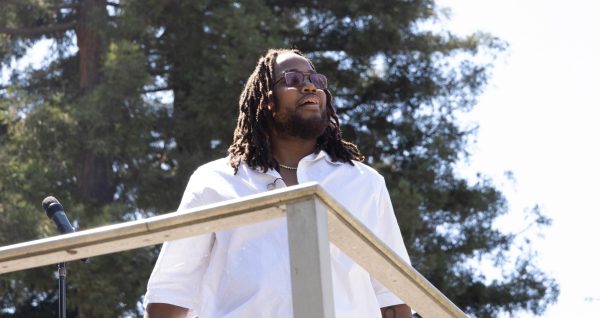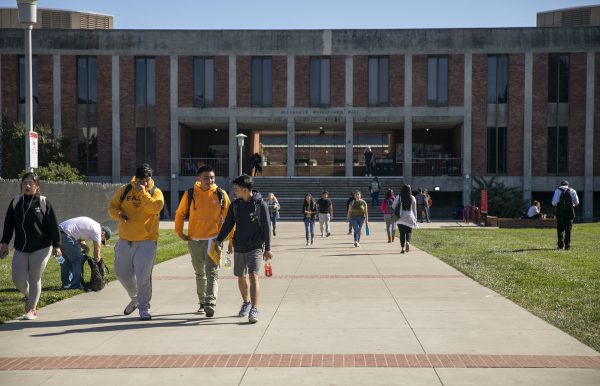CSU East Bay’s new sexual assault protocol in progress
October 2, 2014
California State University, East Bay will implement response protocols regarding sexual assault cases involving its students for the upcoming school year, in response to the recent introduction of two new bills in Congress.
One of the new bills, the Survivor Outreach and Support Campus Act will require a uniform set of disciplinary proceedings to be performed on each campus nationwide by one assigned committee separate from any other campus departments.
Between campus and local law enforcement, there will be a system where information is reported and shared, regardless of jurisdiction, to ensure proper action is followed regarding each case of assault.
University Police Chief Sheryl Boykins explained that because every sexual assault crime is so unique the investigation is driven by what actually occurred. Plans to implement adequate training for officers to recognize sexual assaults and properly investigate them are in the works.
For every investigation, the area in which the crime occurred is quickly secured in order to preserve evidence. Unfortunately, obtaining evidence in a sexual assault investigation is not always an easy task. Victims may wait to report the crime, which then delays the ability to capture evidence.
“We’re going to do a lot of training on the campus this quarter on sexual assaults because there are new laws,” Boykins said.
Training for campus police in the nature of these sexual assault crimes and the type of disciplinary action that should follow has now become mandatory on all college campuses because of the Campus Accountability and Safety Act, according to NY Sen. Kirsten Gillibrand’s website.
The addition of a confidential adviser on every campus will be required under the SOS Campus Act. The confidential adviser will assist the victims’ request for medical attention and counseling services. This position will advocate in the best interest of the victim and is required to report criminal activity to authorities independent of CSUEB.
Although the SOS Campus Act will be designating a private advocate to each campus, CSUEB does provide services of aftercare for sexual assault victims in the meantime. The services offered on and off campus include: student health services, counseling and psychological services, and various sexual assault hotlines; all of which are provided on the Campus Security Report, a campus security policies and crime statistics report.
Under the Jeanne Clery Campus Security Act, CSUEB is required to collect and disclose crime information on and near campus.
The Clery Crime Statistics currently posted dates from the 2009 to 2012 academic year. Although a new report is posted in October of each academic year, it is always one year behind.
“I think it’s important that we have good, honest data,” said Boykins.
Rather than artificially low numbers that do not adequately represent the campus or what really is going on, Boykins said she believes honest data maintains the ability to have a better outcome.
Schools are now responsible for annually surveying students about their experiences with sexual assault on campus. They will be responsible for reporting survey results along with the status of pending and final investigations on each campus to the Department of Education.
Educating students on the new laws concerning sexual assault will be implemented as well.
According to the Bureau of Justice, less than five percent of completed and attempted rapes of college students are reported to campus authorities and/or law enforcement. Creating awareness that encourages students to report crimes on campus may help raise the percentage of sexual assaults that are reported.
Non-compliance will be met with a penalty of up to one percent of the institution’s operating budget; or penalty increases of the Jeanne Clery Act are up to $150,000 per violation, up from the current penalty of $35,000.
“I think that it is a concern for any student or faculty member, male, female, young, old, white, black, Asian, whoever can be a target of sexual assault, which is why awareness and proper education on the issue is key to help keep CSUEB a safe campus,” said senior Michaela Greene.















